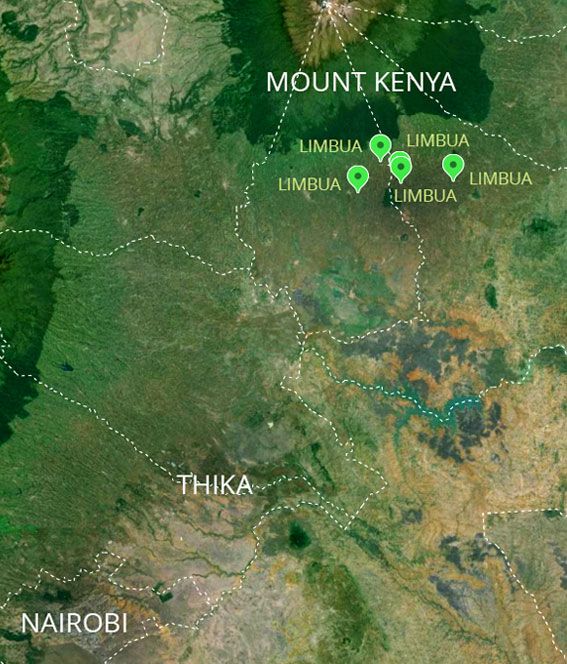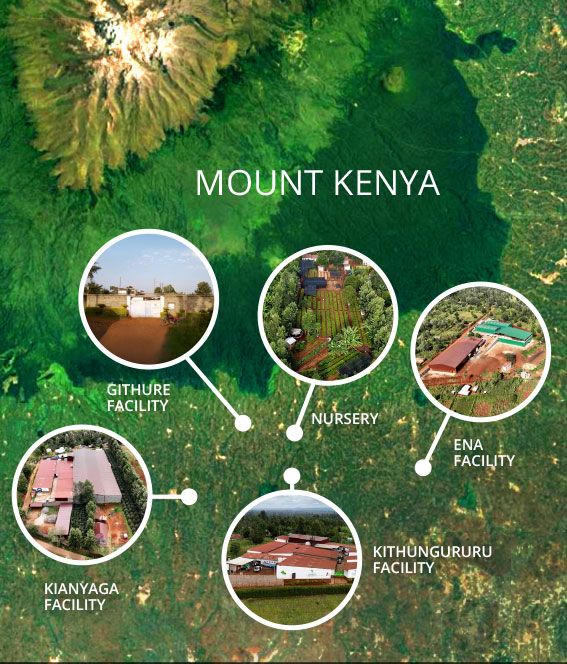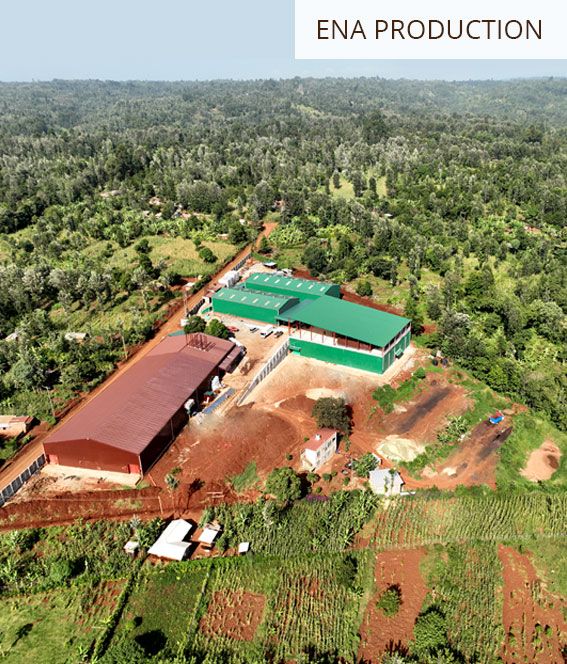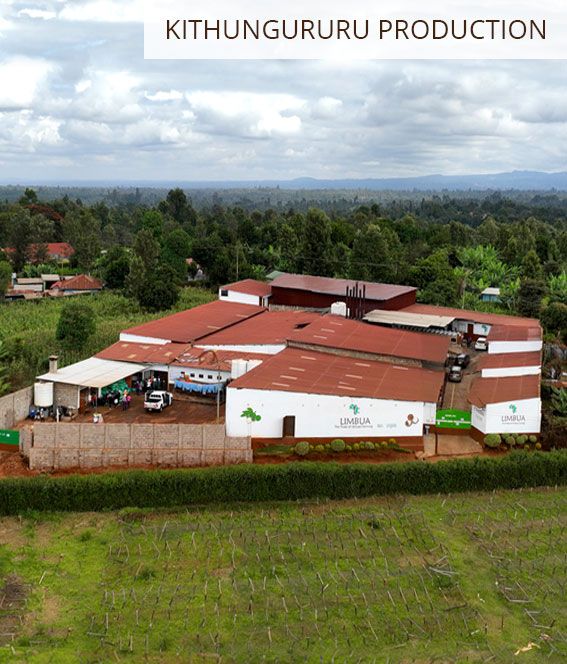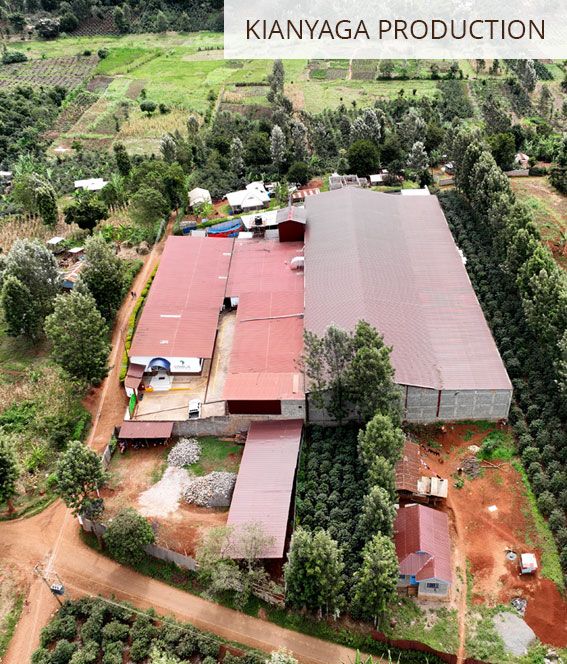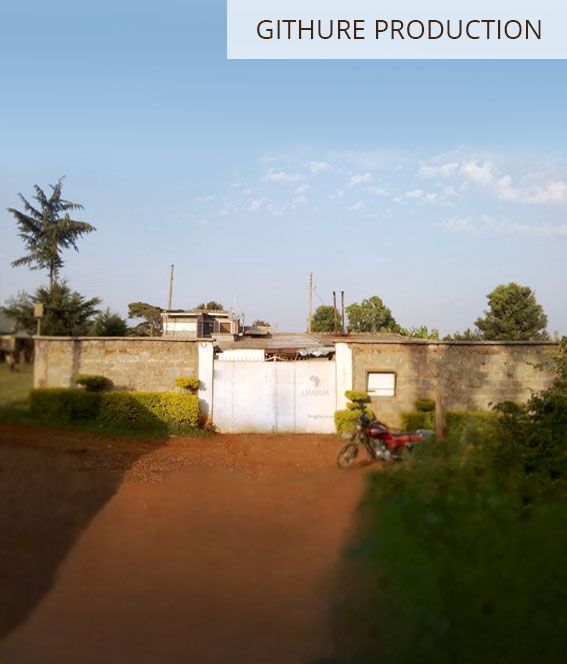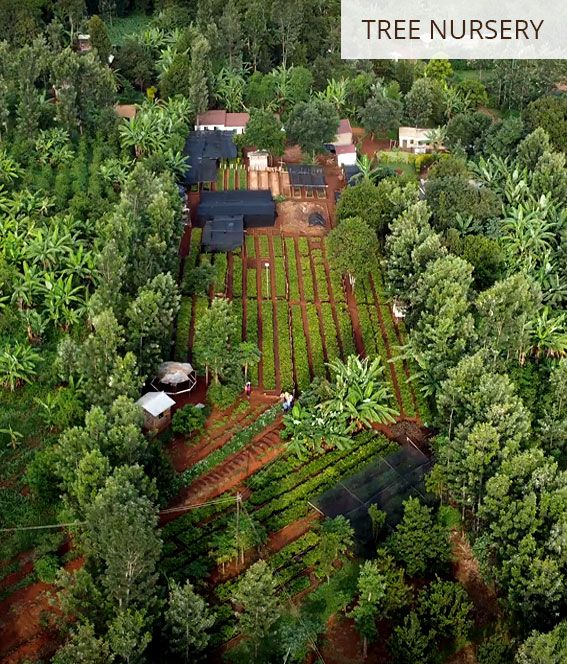Small scale farmers
the heart of LIMBUA
Since LIMBUA was founded in 2009, our core business has been to work with organic small scale farmers at the foot of Mount Kenya. Our mission is to improve the standard of living of the rural population, create local jobs and thus prevent rural exodus.
We work closely with over 7,000 contracted farmers to source organic products such as macadamias, avocados, mangoes and coffee at fair prices. By purchasing the harvest directly from the smallholders, there is no middleman and the farmers receive the full price without any deductions. This results in a win-win situation: better income opportunities for the farmers and high-quality organic products for our customers.
The profits generated by LIMBUA are channelled into the expansion of socio-ecological activities. This enables more and more farmers to become part of the LIMBUA Group. Find out more about this unique project:
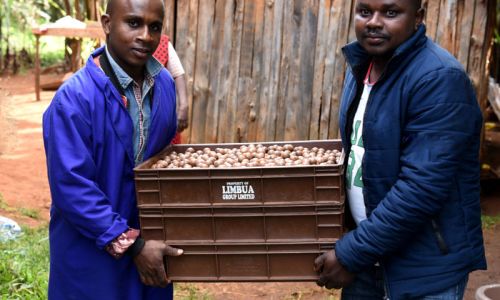
Guaranteed purchase
LIMBUA guarantees the purchase of the entire annual macadamia harvest of the high-quality species Integrifolia from our contracted small scale farmers at above-average prices. Thanks to our digital system, the purchasing process is quick, easy and secure. The smallholders receive immediate payment in real time via M-Pesa, which creates transparency and trust.
And: they are not obliged to sell to LIMBUA, but can decide to whom they sell their agricultural produce.
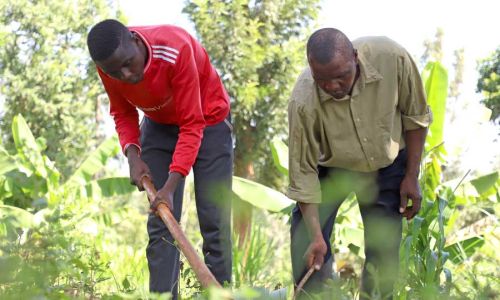
Diversity and security
On average, a small scale farmer owns 1 hectare of land. On the organic mixed farms, they grow a variety of plants, which strengthens biodiversity and offers them greater security as they are not dependent on just one crop.
In addition to macadamia nuts, the most common fruit and vegetable varieties are tree tomatoes, avocado, mango, passion fruit, papaya, bananas, kale, spinach, cabbage, black nightshade, amaranthus, tomatoes and carrots. In addition to being sold, the harvests are also used for personal consumption.
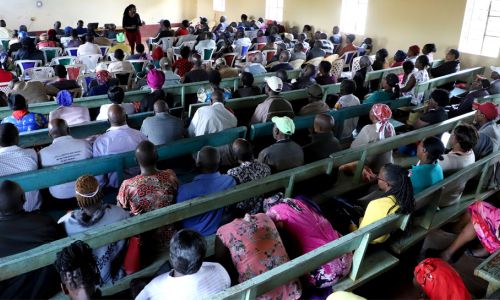
Support and training
The small scale farmers with whom LIMBUA works are supported in obtaining organic certification and continuously trained in organic farming. The entire LIMBUA team regularly attends training courses to provide the best possible support.
The LIMBUA field team of over 50 local organic agronomists forms the interface with the farmers and looks after them. The team also coordinates harvest purchasing and carries out farm inspections. The support is free of charge for the smallholders.
Limbua is on site
4 PRODUCTION SITES
1 TREE NURSERY
in the rural Mount Kenya region
That means:
Jobs in the countryside
No transport costs for the farmers
Improved infrastructure
Direct contact with the people
The harvests bought from the small scale farmers are processed directly on site instead of being transported to the industrial areas of Nairobi or Thika, as it is usually the case.
Video: LIMBUA Farmer 19
Ephantus Murage Murenga is one of the first farmers, number 19, of the more than 7,000 small scale farmers now under contract. He lives in Githure, a town on the slopes of Mount Kenya, and talks about his journey through macadamia cultivation in the video.
"Before the LIMBUA project began, we simply took trees from the forests and planted them as macadamia trees. But the quality was very poor."
Finding the right macadamia variety and switching to organic farming has led to better quality nuts and higher yields, which has had a positive impact on his family, the community and the environment.
By training and providing the right macadamia seedlings for the growing regions, we are equipping farmers like Ephantus with the skills and knowledge to produce high quality, high yielding crops. This, along with improved soil fertility, are some of the benefits of sustainable organic farming methods.
Challenges of the rural population and solutions
-
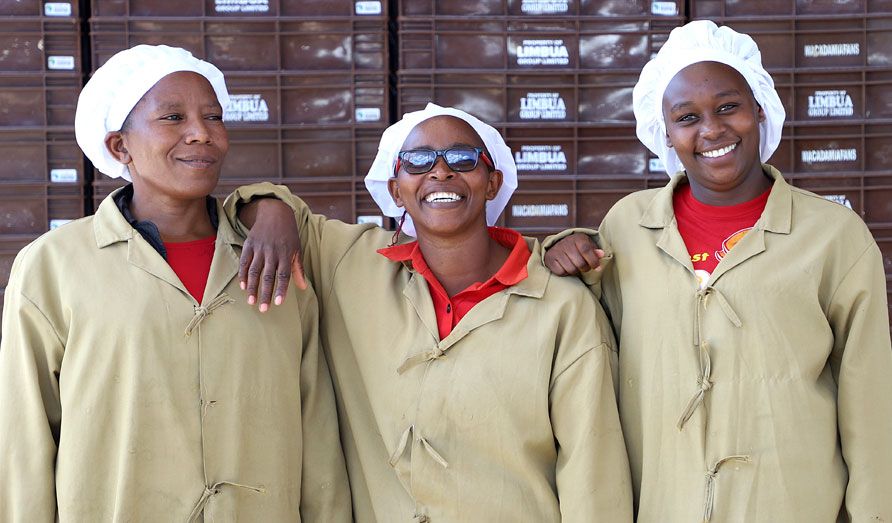 Income opportunities for women and young people
Income opportunities for women and young people1. Perspectives
The rural exodus of young people from the countryside of Kenya to cities such as Nairobi poses a significant challenge to the rural population. Migration separates families as young people move to the cities in search of employment opportunities while their families stay behind in the countryside.
This separation can lead to enormous emotional stress and affect the social fabric of rural communities. In addition, rural exodus leads to depopulation of rural areas and a decline in agricultural productivity, which jeopardises the livelihoods of the remaining communities.
Many young people who move to the cities often end up in slums, where they face poverty, unemployment and inadequate living conditions.
Solutions:
LIMBUA responds to these challenges by creating local jobs in the decentralised production facilities. Employment opportunities with fair pay reduce the exodus of young people to the cities.
The majority of the more than 700 people now employed are family members of the smallholder community, especially women and young adults, in order to offer them job opportunities and a sustainable source of income.
We also emphasise the importance of keeping the added value local by sourcing and processing the harvests directly from the small scale farmers. These measures help to strengthen the livelihoods of rural communities, stem migration and promote sustainable development in rural areas.
-
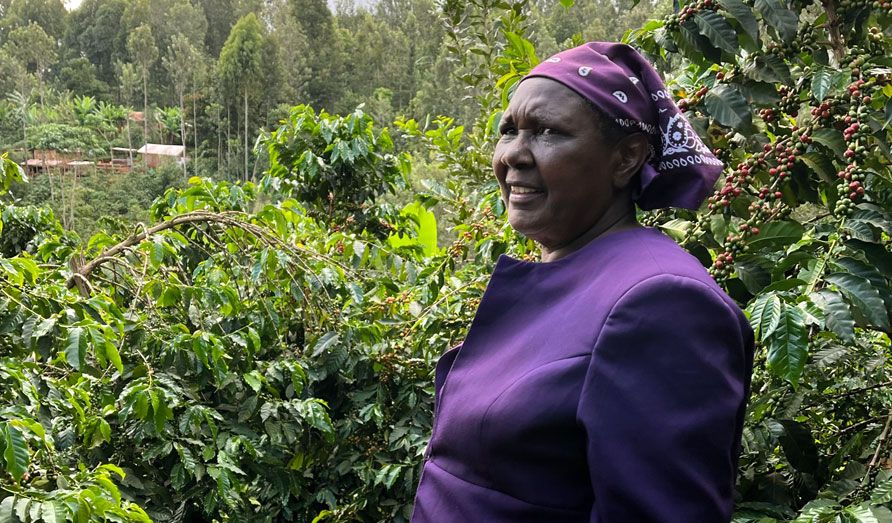 Diversity and sustainable agriculture
Diversity and sustainable agriculture2. Climate change
Small scale farmers in Kenya are also facing increasing challenges due to climate change. The effects are often particularly severe due to the heavy dependence of many smallholder farmers on agricultural yields for their livelihoods.
These changes manifest themselves in erratic rainfall, prolonged droughts and unpredictable weather events such as heavy rains and storms.
These factors affect agricultural production as they can lead to crop failures, reduced yields and an increased risk of diseases and pests.
The unpredictable weather conditions complicate the planning and management of cultivation cycles and make it difficult to develop appropriate adaptation strategies.
Solutions:
LIMBUA is working on increasing awareness and training on climate-related risks and adaptation measures in order to strengthen the resilience of small scale farmers to the effects of climate change.
In addition, the cultivation of several types of fruit and vegetables on the organic mixed farms leads to diversification and increased security in the event of crop failures.
LIMBUA also invests in the development and implementation of sustainable agricultural practices that protect the environment and reduce the vulnerability of small scale farmers to the effects of climate change. This includes measures such as the promotion of agroforestry systems, soil improvement through composting and the introduction of climate-resistant plant species.
-
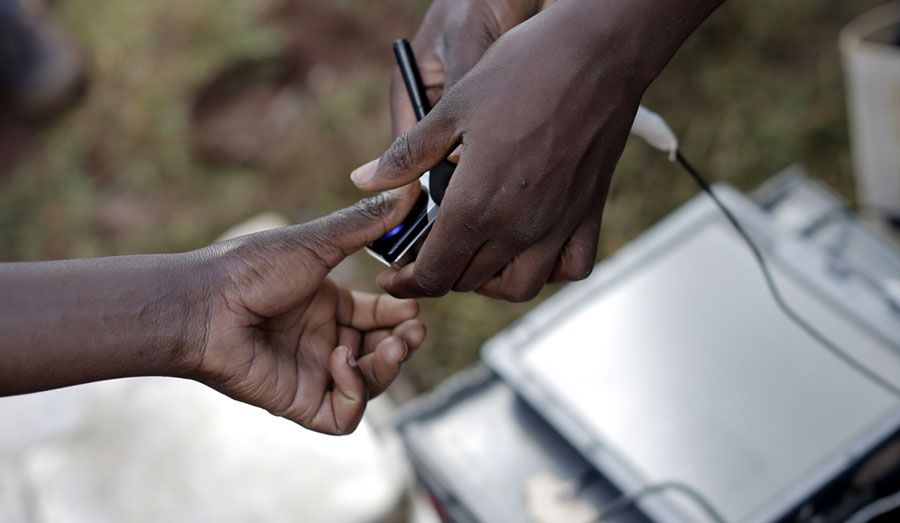 Digital systems and direct purchasing
Digital systems and direct purchasing3. Scam
Small scale farmers often face the challenge of fraud by middlemen when selling their harvests. There are traders who exploit their position to push down prices and exploit farmers for their own profit.
They take advantage of the small scale farmers' limited market knowledge and negotiating power and offer unfair low prices for their crops.
Furthermore, middlemen sometimes buy incorrectly weighed products, resulting in financial losses for the farmers.
In some cases, they also fail to pay the farmers on time or at all, jeopardising their financial stability and increasing their dependence on middlemen.
Solutions:
A central approach of LIMBUA is the direct purchase of the harvests by our teams from the small scale farmers. This eliminates the possibility of fraud, as middlemen are excluded and the farmers interact directly with LIMBUA. In addition, payment is made directly to the smallholders' mobile phones in real time, which is a transparent and secure transaction method and ensures the financial integrity of the farmers.
Furthermore, LIMBUA guarantees the accuracy and reliability of the purchasing process by using calibrated scales. These prevent any manipulation during measurement and ensure that the farmers are paid correctly. In addition, the entire harvest purchasing process is digitalised and secured by a fingerprint system for allocation. This enables complete traceability of the harvests back to their source and protects against identity theft or fraud on the part of middlemen.
-
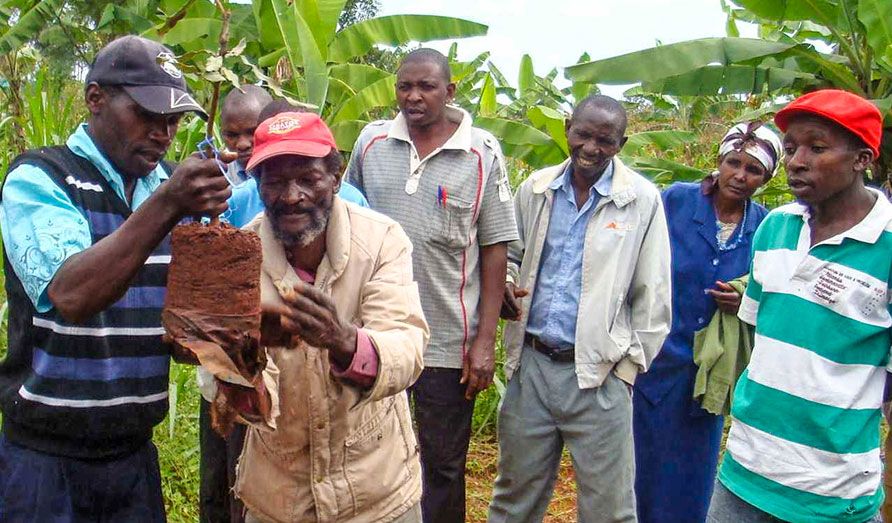 Organic resources
Organic resources4. Costs
Small scale farmers often face the challenge of high costs for inputs needed to grow their crops. These costs include seeds, fertilisers and other agricultural inputs, which account for a significant proportion of operating expenses.
The cost of inputs is a financial burden for the farmers and can affect their profitability and competitiveness. They also lead to smallholder farmers relying on the use of expensive chemical pesticides and fertilisers, which can have a negative impact on the environment and health.
Transporting crops from the field to the market or processing plant can cause additional costs, especially if the transport infrastructure is poorly developed.
Solutions:
LIMBUA provides the contracted small scale farmers with certified organic inputs. This includes, for example, the free distribution of organic compost made from organic production waste, which is a sustainable and environmentally friendly alternative to chemical fertilisers.
Furthermore, LIMBUA provides high-yield tree seedlings from its own tree nursery to increase the productivity of smallholders and maximise their yields.
In addition, the LIMBUA Foundation offers services such as the installation of eco-wood stoves and bio-gas systems on the smallholders' farms in order to reduce energy costs and the ecological footprint of the farms. Taking over the transport of harvests for processing also helps to reduce the financial burden on small scale farmers.
-
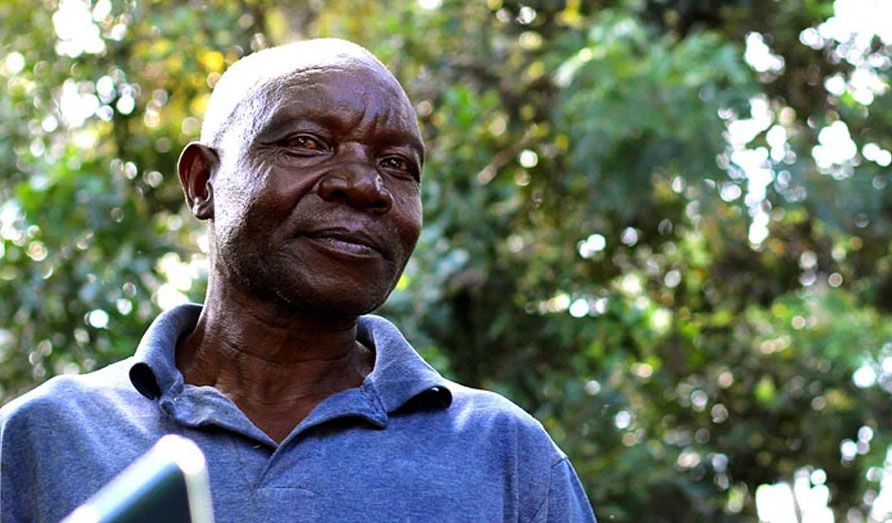 Fair prices and direct contact
Fair prices and direct contact5. Market access
Small scale farmers often have the problem of finding appropriate market access for their goods.
They often find it difficult to market their harvests and obtain a fair price for their products. They lack easy access to current market information such as prices, demand and supply situations or trends. As a result, they are unable to make well-informed decisions about which products they should grow and when they can bring them to market.
This is compounded by inadequate rural infrastructure and a lack of bargaining power with wholesalers and middlemen.
The consequences of these challenges are financial insecurity, low incomes and an uncertain future for smallholder farmers and their families.
Solutions:
A key aspect for LIMBUA is the payment of a fair purchase price for the harvests. The price is not only determined on the basis of the current market price, but the smallholders also receive a premium. The amount of this premium is determined in direct discussions with the smallholders, taking into account their needs and the current market conditions.
Thanks to the fair pricing model, the smallholders receive appropriate remuneration for their hard work, which further strengthens their financial stability and security. In this way, we help to improve market access for the farmers and secure their livelihoods.
Purchasing directly from the farmers also eliminates the need for intermediaries. Furthermore, we reduce the burden by collecting the harvests and transporting them to the local production facilities.
-
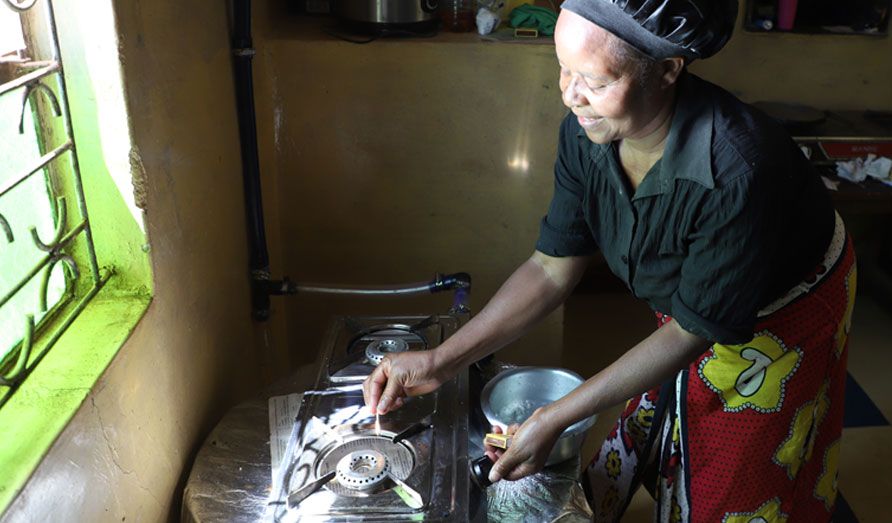 Production sites in the countryside
Production sites in the countryside6. Living conditions
The living conditions of the rural population in Kenya are often characterised by challenges that make their everyday lives more difficult. For example, people are often affected by unreliable infrastructure, limited access to education and healthcare and a lack of electrification in rural areas.
They also struggle with low income or no income opportunities and insufficient market opportunities. The cost of living can be a major burden for many rural households, especially when prices for food and other basic necessities are rising and incomes are limited.
A lack of information and alternatives leads to the use of chemical fertilisers and pesticides, which have a negative impact on the environment and people's health.
Solutions:
By setting up production sites directly on site instead of in distant cities, LIMBUA creates jobs in rural communities, which has led to an improved road network, the electrification of rural areas and a strengthening of the local economy.
We also support local schools and promote organic farming from the outset. The installation of water pipes for irrigation and drinking has improved the quality of life and agricultural productivity in the communities.
By consuming healthy and safe organic food grown on their own land, without the use of chemical fertilisers, smallholder farmers benefit from improved health. These holistic solutions help to significantly improve people's living conditions.
Video: LIMBUA Farmer 70
Bancy Wakarii Gichobi is the 70th organic farmer to be included in the LIMBUA project.
What is crucial for Bancy is that she was able to finance her house and her children's university education thanks to the income from her co-operation with LIMBUA.
"When I started using organic compost on my farm, I noticed a significant increase in the productivity of my coffee and macadamia trees."
This is just one of her testimonies to the positive effects of organic farming. For LIMBUA, sustainable agriculture is about protecting the natural biodiversity of the soil and ensuring sustainable yields.
We have also recently launched a project to help farmers install biogas plants on their farms to produce cooking gas. Bancy is one of the participants in this programme.
What has changed?
Due to the fair prices above market value and the guaranteed harvest purchase by LIMBUA, the small scale farmers have more financial resources at their disposal. This is reflected, among other things, in the increased ability to build a house out of stone and to finance school fees and children's education at university.
Regenerative organic farming on the mixed farms leads to fertile soils, better climate resistance and increased productivity for the smallholders. The provision of high-yield tree seedlings from the LIMBUA tree nursery for the small scale farmers has also supported increased productivity.
95% of the employees in the LIMBUA production sites, who come from the surrounding smallholder families, can stay with their families thanks to the income opportunities on site instead of having to emigrate to the cities, where they often have to live in the slums.
The construction of the 4 production facilities in the middle of the smallholder community, instead of in the big cities as it is usually the case, has led to the electrification of households, where previously they were often dependent on petroleum.
Due to the LIMBUA production facilities on site, the installation of water pipes for the local rural population was also promoted.
The majority of LIMBUA employees are deliberately women: in rural regions, it is often particularly difficult for them to earn a living for themselves and their families. Thanks to the income opportunities, women are more independent and self-empowered. In addition, women are represented in all positions at LIMBUA: from management to purchasing to production.
With each new production site, the access roads were expanded and the road conditions improved. Where there were sometimes only muddy paths, there are now paved roads.
The regenerative organic farming practised by thousands of small scale farmers also dispenses with chemical fertilisers and pesticides and offers alternatives such as organic compost. By consuming the food they grow, the local people eat healthy food without harmful chemical residues.
In contrast to monocultures, the soils of organic mixed farms are more fertile and higher yielding. This secures the livelihood of the farmers.
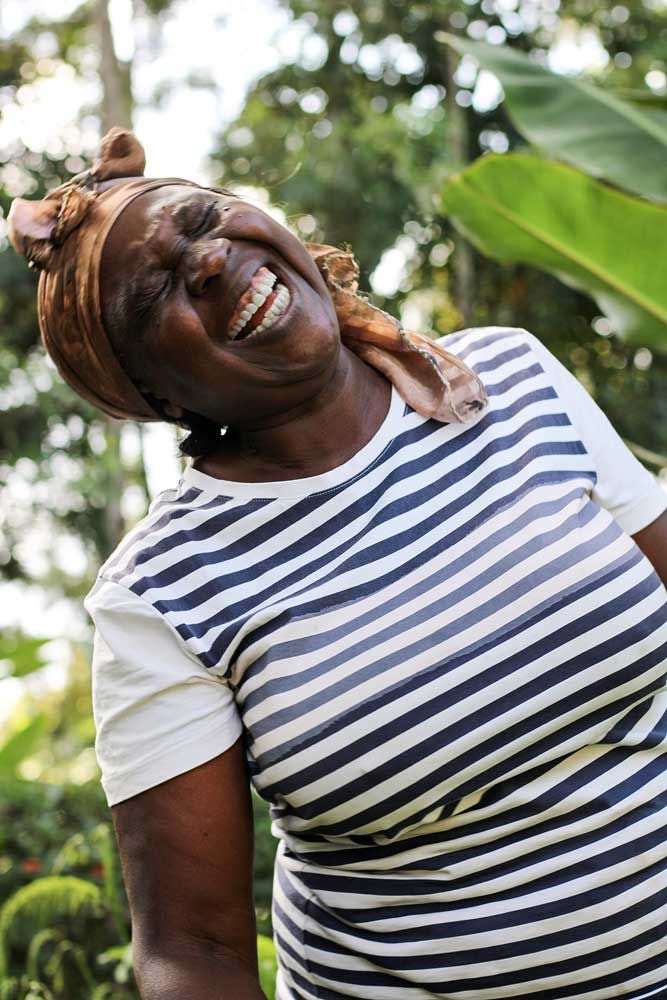
Video: LIMBUA Farmer 5
Over 60 years young, James Cyrus Nyaga is the fifth LIMBUA contract smallholder farmer and one of the very first from the very beginning. When James joined the project in 2010, organic farming was a new phenomenon and farmers did not realise that the conversion process required patience. Now that farmers have realised the benefits of organic farming alongside increased production, interest in conversion has soared.
As a pioneer, James has been at the forefront of encouraging other smallholders to convert to organic farming and they still often seek his advice. Over the course of LIMBUA's development, thousands have followed him and joined organic farming.
It also gives James a good feeling to know that what he eats is free of chemical residues and contributes significantly to the health and well-being of his family.
True to his motto: If you don't worry, you stay young!
"Seeing how the living conditions of the small scale farmers are constantly improving on your journey with LIMBUA motivates me every day."



